Brand Stan: Jess Cole On Wales Bonner
Working as a model, Jess Cole is no stranger to designer clothes. Yet for Cole, one name stands above the rest: British label Wales Bonner, a regular in Cole’s wardrobe and a designer on whose runway Jess often appears. Here, she tells us more about her love for this young brand.
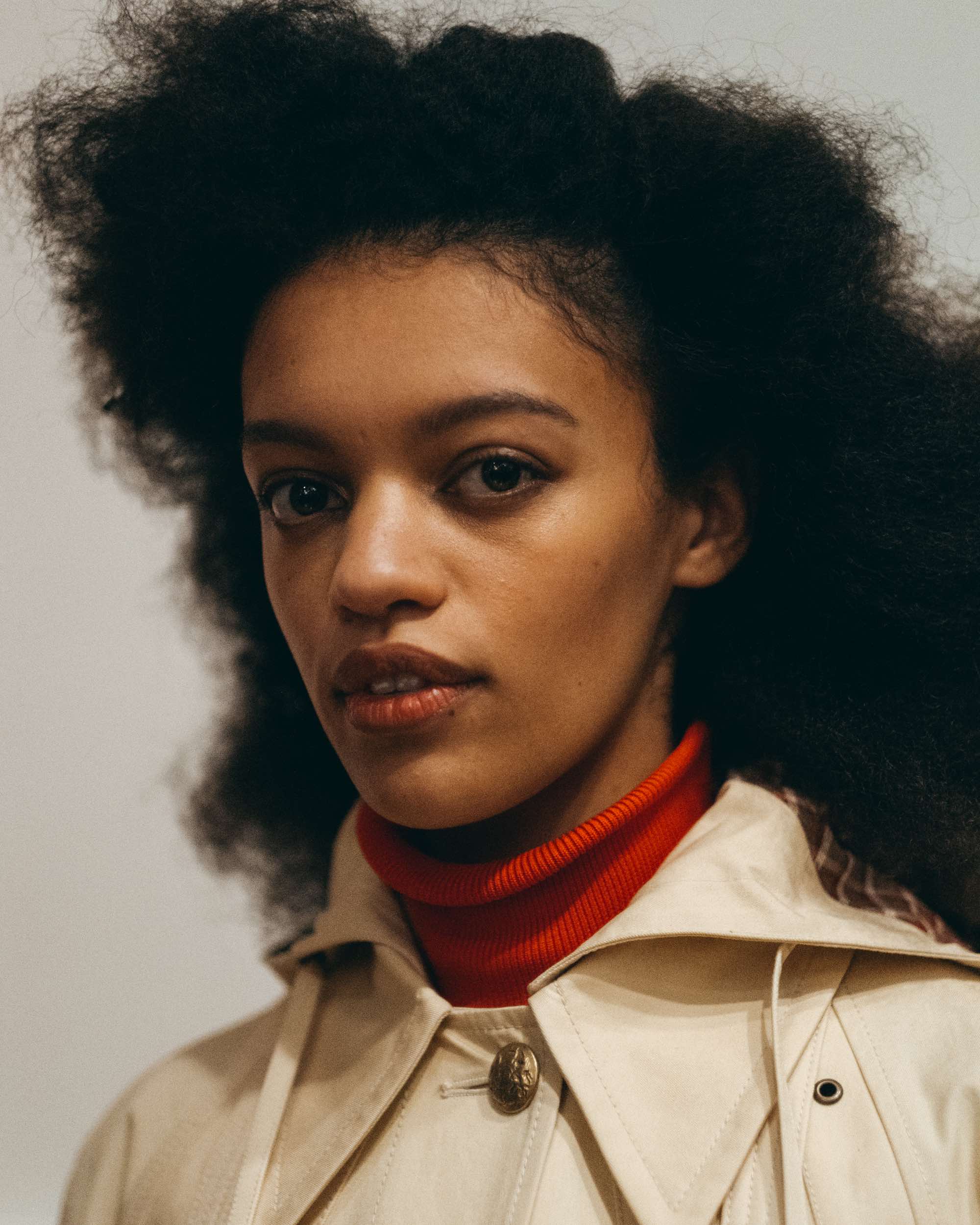
Backstage at Wales Bonner's 'Lover's Rock' A/W20 fashion show
The etymology of the word “history” is derived from the Greek word historia, meaning inquiry. To historicise, then, is to take account of events that someone has assembled from making inquiries and crafting these into stories. In the practice of designer Grace Wales Bonner, this means a rigorous excavation of the multitudes of Blackness; re-centering and re-texturising them back into central narratives. Redefining history via the inquiries she makes with her clothes.
I remember my first encounter with Wales Bonner back in 2016. It was via the short film Practice; a collaborative effort between Grace, photographer Harley Weir, musician Dev Hynes and ballet dancer Leroy Mokgatle. Shot in Mokgatle’s native South Africa, I was entranced by the film’s meditation on the fluidity of Blackness; a metaphor for selfhood extending far beyond the lacquers of racialisation.
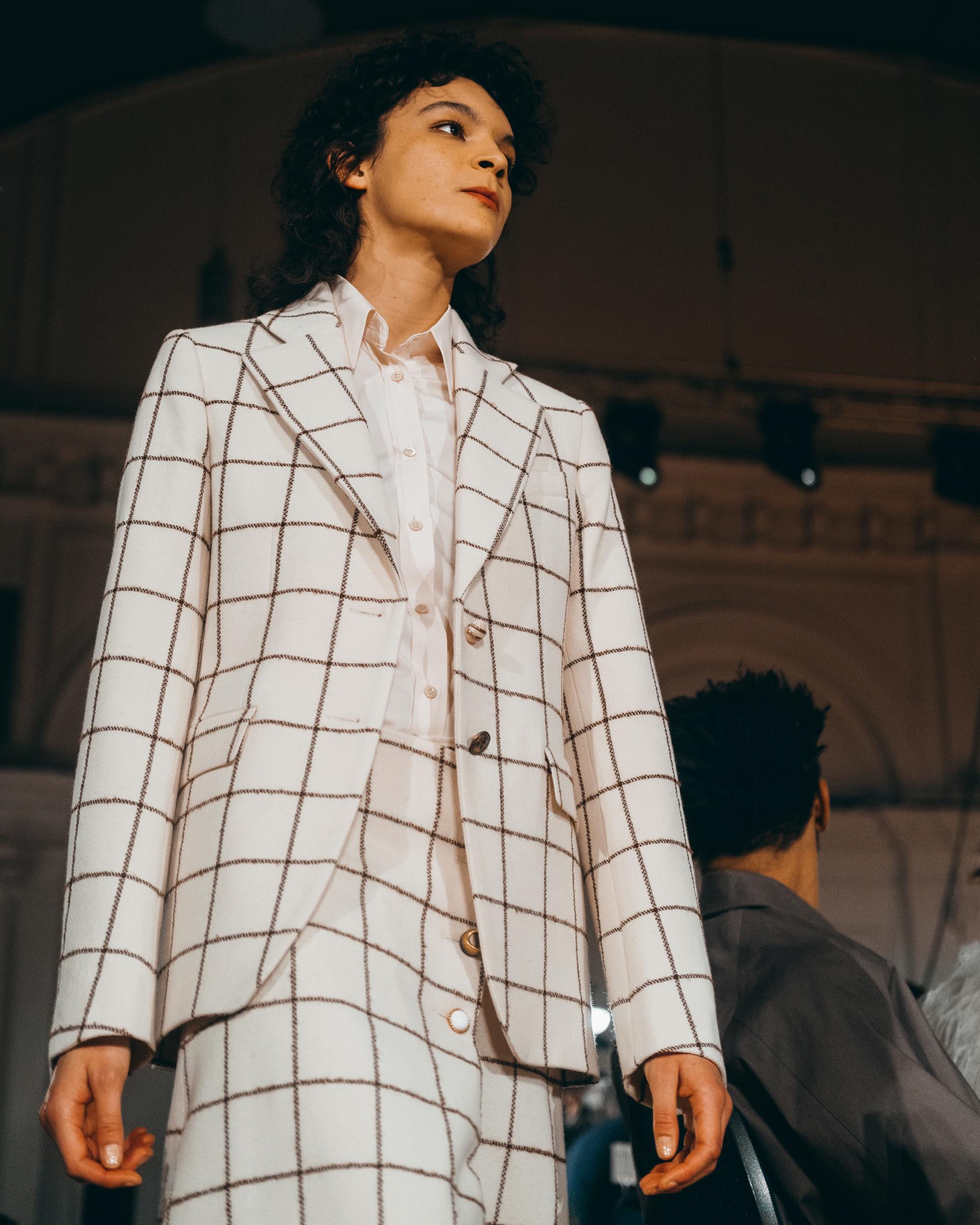
Jess walks in Wales Bonner's 'Lover's Rock' A/W20 show
The writer Ishamel Reed also viewed dance as a physical technology for spirituality. In his novel Mumbo Jumbo, Reed wrote how those who cannot dance are imprisoned in their own ego; that they have lost the tune of life. Mumbo Jumbo formed the conclusion to Grace’s 2019 exhibition at The Serpentine gallery, which introduced me to the work of Reed. When I was studying my undergrad in English, my reading list was claustrophobically confined to white male authors. What I find so marvellous about Wales Bonner is how each collection releases more and more Black writers into my orbit.
Grace, who like me, is of British-Jamiacan heritage, is attuned to the dynamism of identity, the kinetics of the human and the spiritual; the material and the intangible. From her graduate collection exploring Coco Chanel via Lagos, to her aforementioned Serpentine exhibition; a show of Black intellectualism. Her 2019 haute couture collection, presented within the exhibition, was an aesthetic consideration of the artist as shaman, conducted via Howard university intellectuals such as Reed, artist David Hammons and one of my biggest personal influences, New Yorker writer, Hilton Als. It was in this show that I first modelled for Grace, and it was in this show that I first felt accepted as an active, visible member of the Black community.
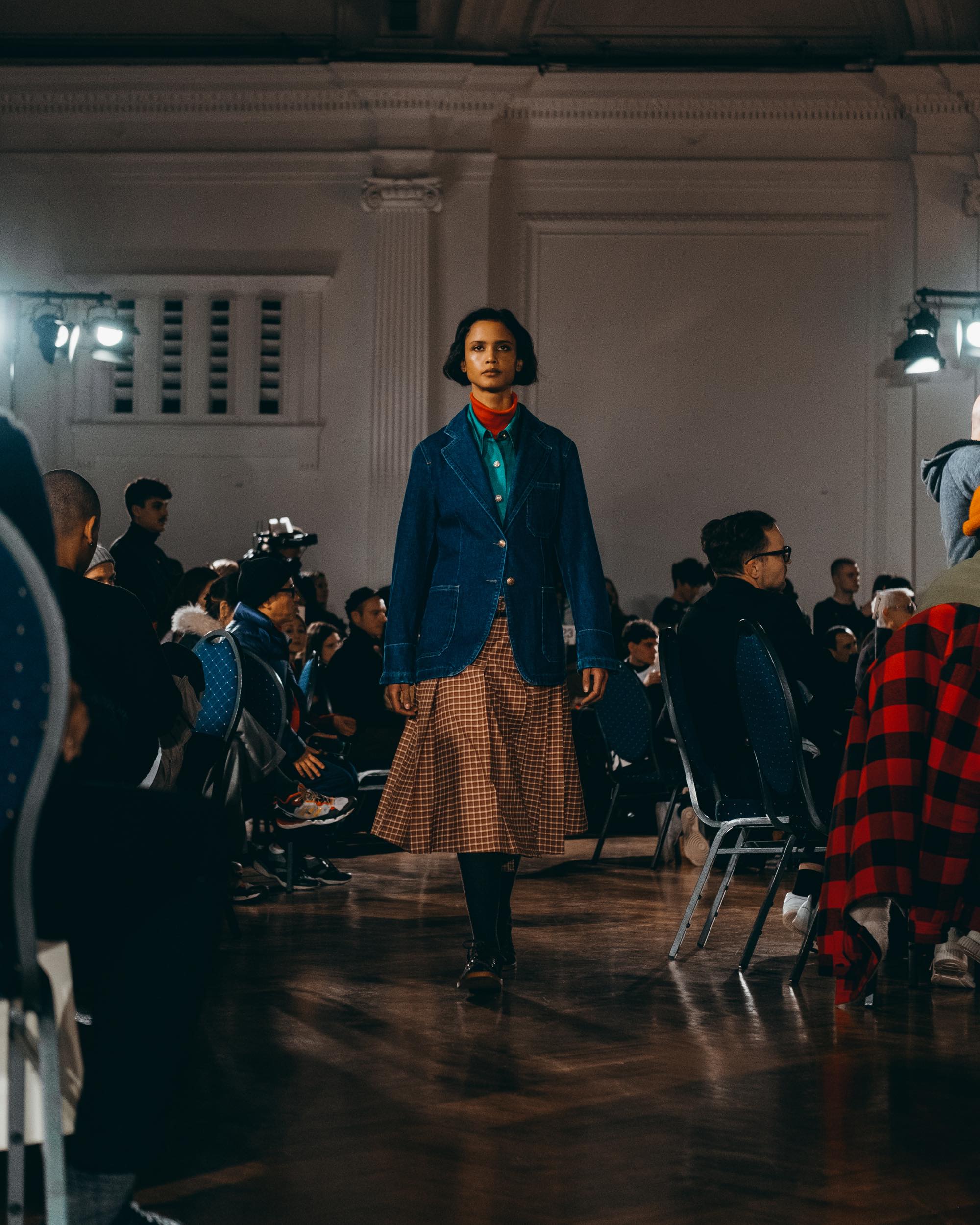
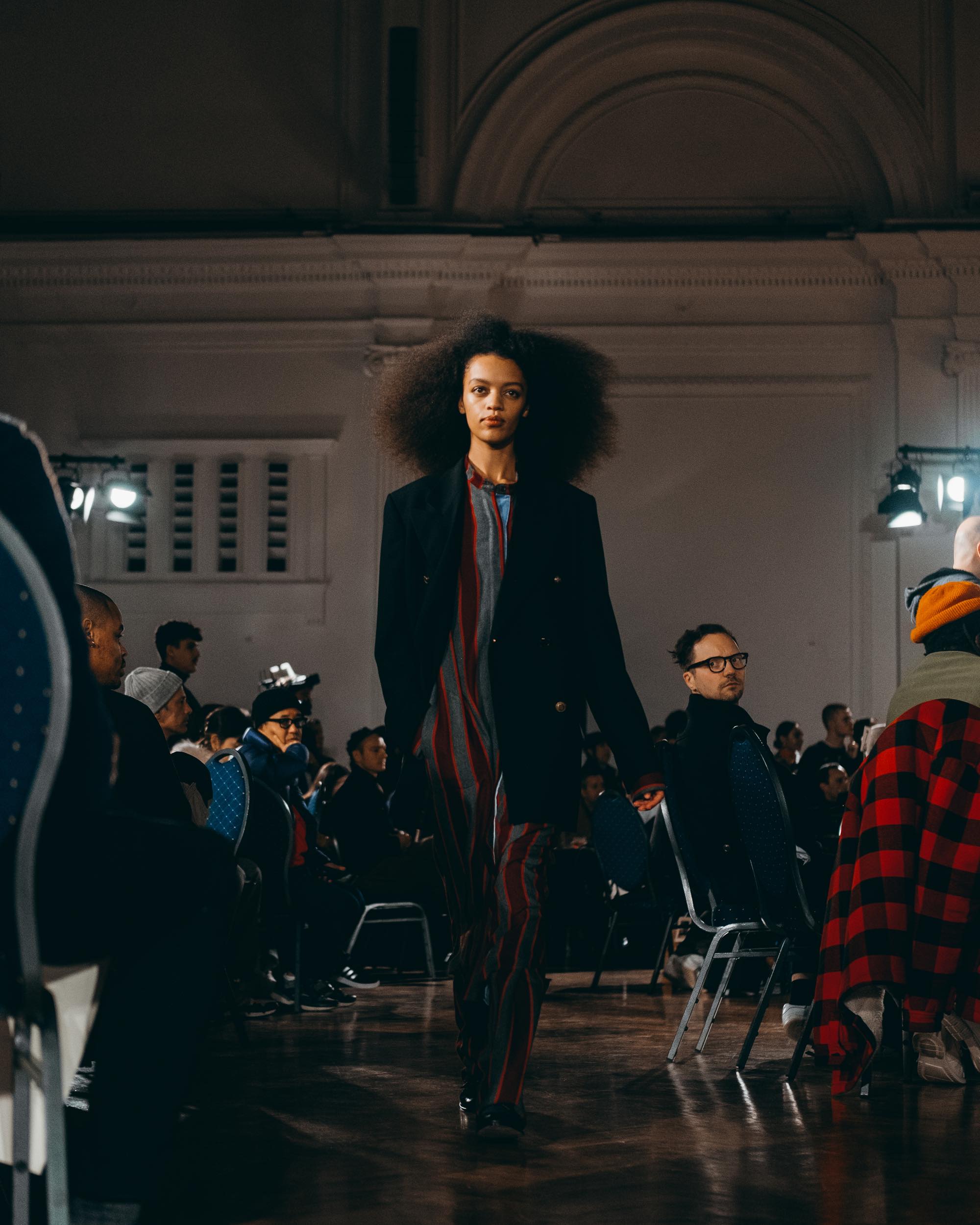
There I was, dressed in a brown coat, curls tucked over into a side parting, sauntering underneath the resplendent veils of an Eric N. Mack installation. My waist was cinched in by a leather belt and my wrists were sealed with silky cuffs. I regained something that fashion has become estranged from: sensuality and modernity with a twist of eccentricity.
Then next time was for the Fall/ Winter 2020 collection, titled Lover’s Rock, which drew its name and inspiration from the 70s British Afro-Caribbean subculture. Here was the pure abstraction of Frank Bowling, a master painter fuelled by his endless, relentless, desire to expand the potential of painting. Flashes of Bowling’s work appeared on silk shirts, alongside enlarged poplin collars in eclectic minty greens, high-waisted trousers in a biscuity brown and that exquisite Savile Row tailoring.
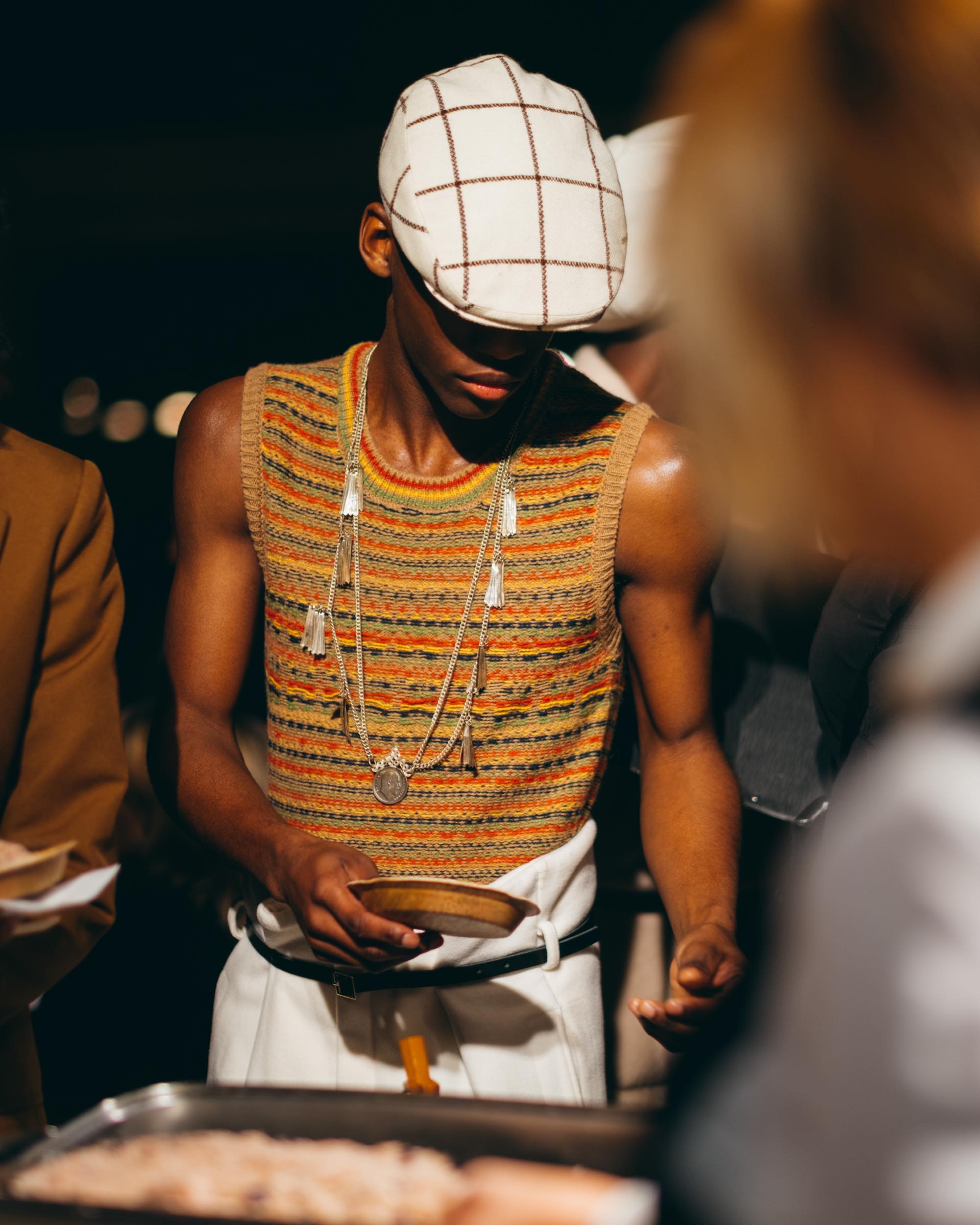
Lover’s Rock is Wales Bonner coming home and peeling back the nuances of Caribbean identity within the context of Britishness. For me, it is also about how fashion doesn’t have to be painful and posturing. The collection is a revisiting of styles made to make you want to dance, made for finding some pleasure, made to make you not only look, but also, feel good.
Throughout his career, Bowling resisted offering a monolithic representation of his life and world view as a Black man. Instead, he moved between the realms of the real and the imaginary. It is here too that Wales Bonner shares a similar trajectory; crafting clothes that reinsert and continually reassess the nuances of Blackness in real time. And the stories you thought you knew, well, they’ve been opened up into spaces for infinite inquiries.
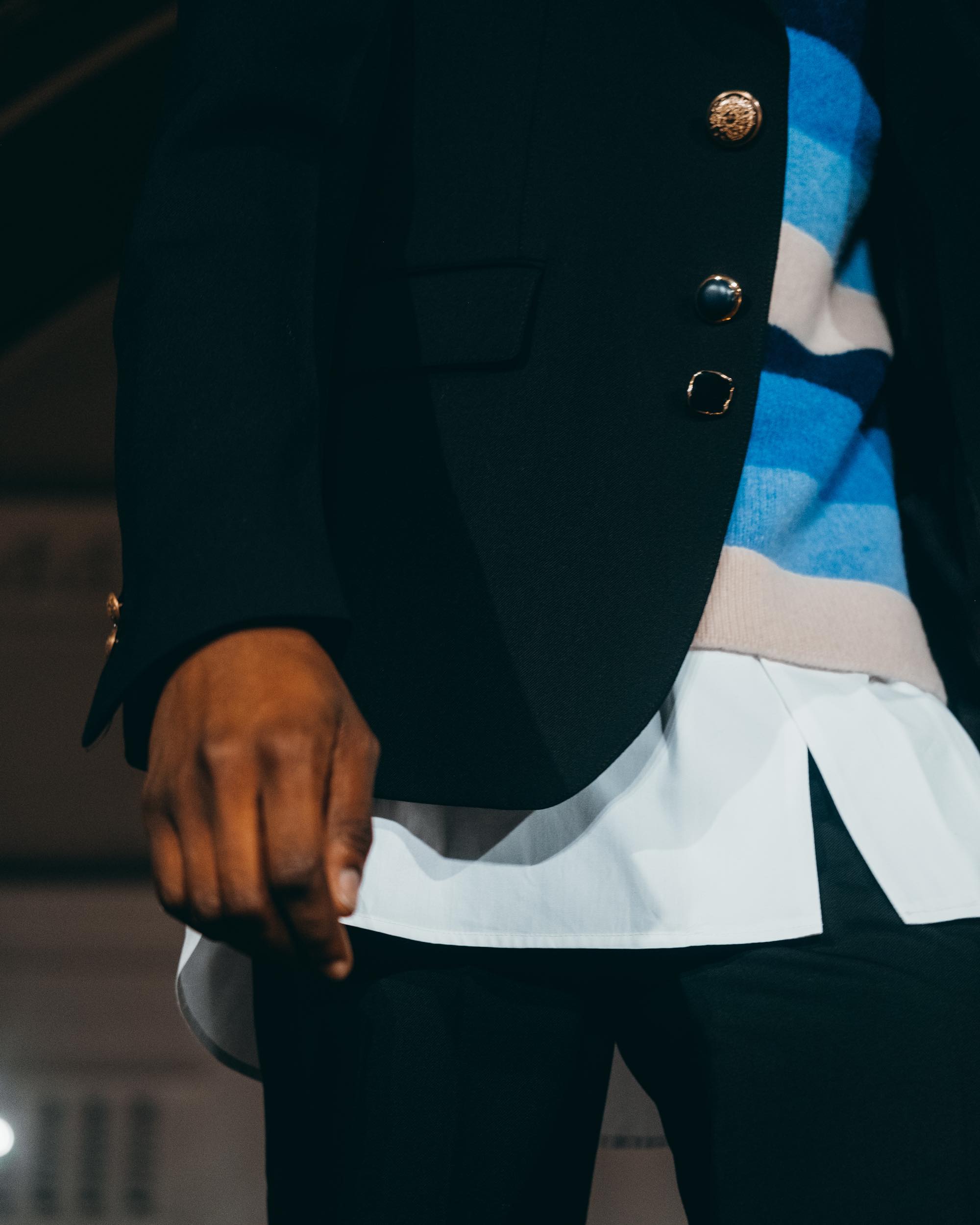
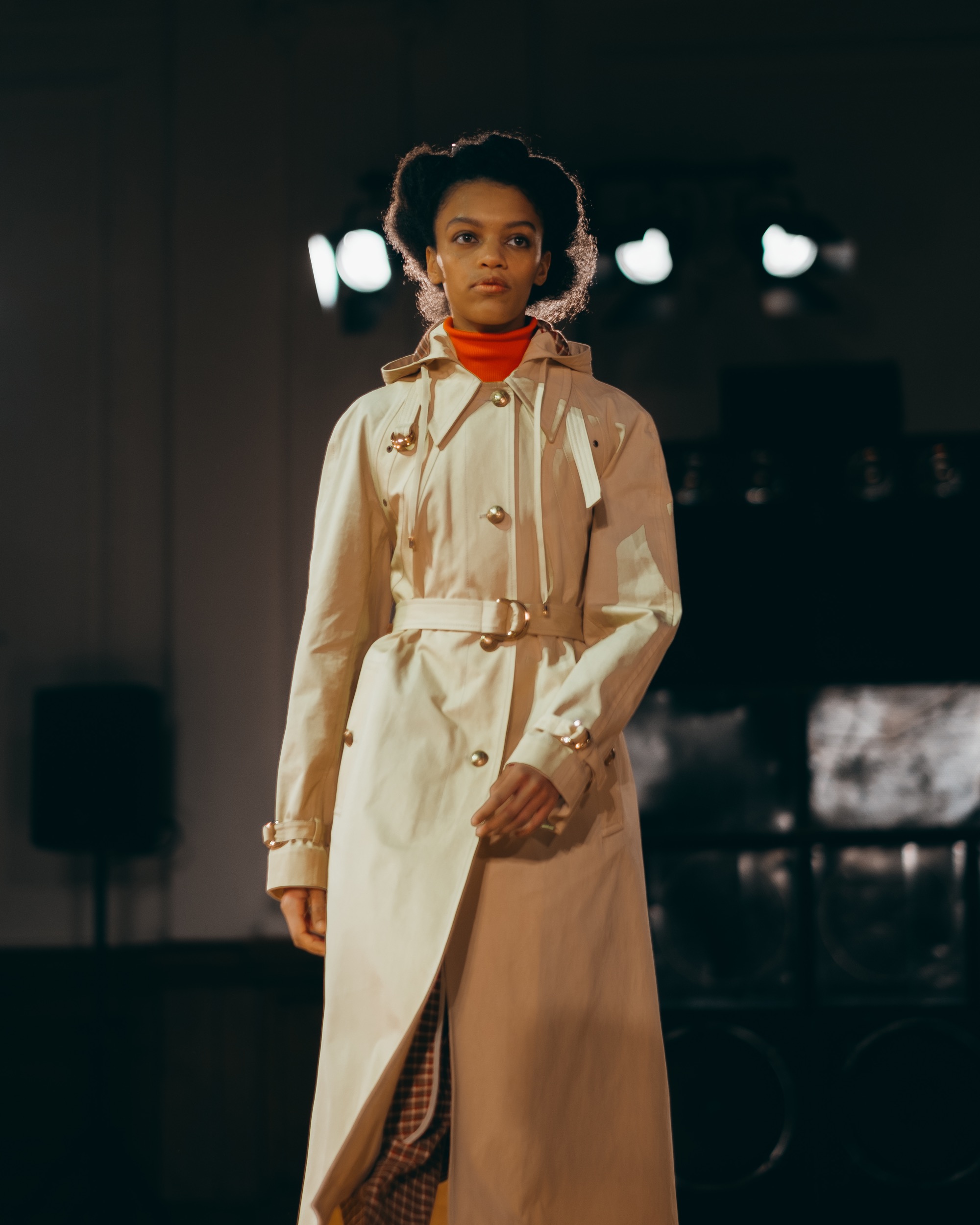
Jess Cole is a writer and model based in London. Her work has appeared on The Guardian, Gal-Dem and Document Journal and she has fronted campaigns for the likes of Burberry and Céline.
Photography by Inès Manai
Related Reading
British Heritage Redefined
Brand Stan: Pam Boy On Richard Quinn
Brand Stan: Emma Hope Allwood On Prada
A Family Affair: Guest Edited By The British Fashion Council
See All The Features